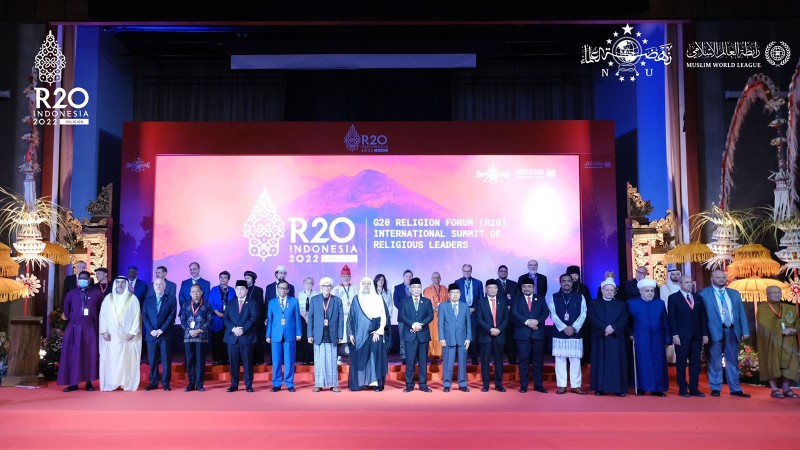“Religious fanaticism, hatred, intolerance toward the ‘other’ is a major challenge for the globalised world. Only dialogue offers a credible alternative to violence and war. Dialogue to resolve differences, and dialogue to heal wounded memories,” said CEC President Rev. Christian Krieger, speaking at the R20 Interfaith Summit held from 2-3 November in Bali, Indonesia.
Rev. Krieger was asked to present about the legacy of the intra-religious conflict within Christianity, drawing lessons from the 1572 St. Bartholomew’s Day massacre in Paris. Drawing historical comparisons, he shared how the ecumenical solidarity and dialogue have come a long way.
“Today, the relationship between Catholics and Protestants in France is nothing like the one that led to the massacre. Protestants are no longer victims and cannot wallow in their role of victimhood.”
“It is unthinkable to assign to Catholicism a fossilised image, which ignores present realities and despises the fruit of the ecumenical movement and the achievements of the theological dialogues and meetings which, over the last few decades, have forged a spirit of unity between Catholics and Protestants, a unity that is certainly differentiated, but witnesses to a reconciled unity.”
“Reconciliation is needed to heal the wounds of memory,” he added. “It is time to convert the hatred of the ‘other’ into respect for otherness and transform resentments into fraternity, and by doing so breathing life into the ethics of peace.”
The R20 Summit brought religious leaders from many traditions ahead of the annual summit that brings together the leaders of the world's 20 largest economies for G20.
The summit featured contributions from religious leaders on pressing issues, including the inclusion of religious minorities, the refugee situation, and other religiously, intellectually, and culturally important issues, along with relevant political matters.
